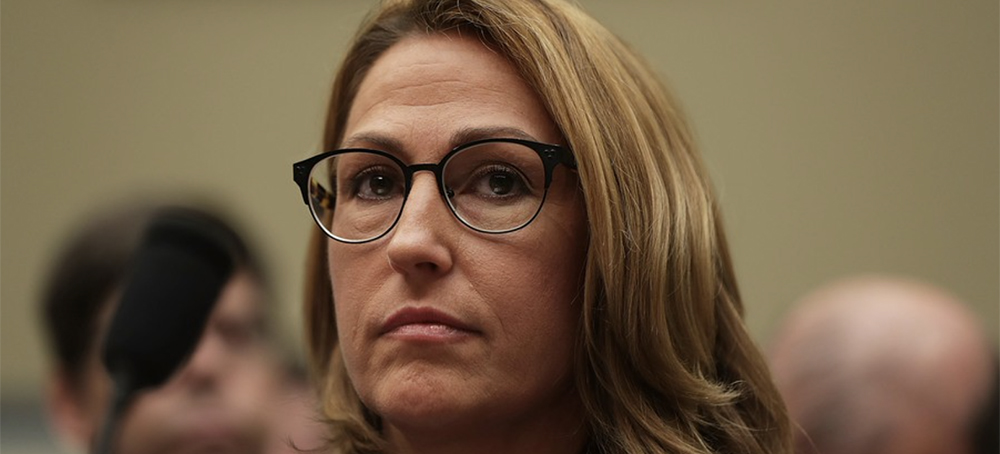Live on the homepage now!
Reader Supported News
Contrary to what the senator says, there’s absolutely nothing ‘entitled’ about expecting a government to care about the people it represents
Joe Manchin is on a mission to save the United States from becoming an “entitlement society”. The West Virginia senator has become a household name thanks to his attempts to ensure the Democrats achieve absolutely nothing whatsoever in the next few years; in particular, he’s been fighting to shrink the price tag of the Biden administration’s 10-year social spending package from $3.5tn to $1.5tn. He’s been very vague about what policies he wants to cut from the Build Back Better bill, he just keeps repeating the fact that he doesn’t want Americans to become entitled.
“I cannot accept our economy, or basically our society, moving towards an entitlement mentality,” Manchin explained last week. “That you’re entitled, OK? I’m more of a rewarding, because I can help those that really need help.”
Judging from that soundbite, Manchin really needs a little help formulating his sentences in a way that actually makes sense. Still, I think we all get the gist of it: Manchin doesn’t want Americans to get spoiled by unhinged socialist policies like affordable childcare, an expanded child tax credit and paid family leave. I mean, imagine if fewer kids grew up in poverty? Imagine if the US stopped being the only rich country in the world without paid family leave and, subsequently, parents got to spend a little time with their newborns instead of being forced to rush back into work? Imagine if women didn’t have to drop out of the workforce because childcare is so damn expensive? What sort of society would that lead to, eh? It’s so deeply un-American that it doesn’t bear thinking about.
Instead of people expecting handouts from the government, everyone should just strive to be more like hard-working, completely unentitled Manchin. Before getting into politics, Manchin started a coal company called Enersystems, Inc. He now makes around half a million dollars a year in dividends from the millions of dollars in stock he owns. A really great lesson there for lazy socialists: instead of demanding the government provide a basic social safety net, people should just invest millions of dollars in the stock market and make passive income via dividends that way. That’s what real American work ethic looks like!
Manchin, by the way, has handed over the reins of his coal companies to his son, Joe Manchin IV. Which provides another great lesson in how you build an entitlement-less society: be born into a family where your dad just hands you a job. It’s a genius life hack, I don’t know why more people don’t try it.
Manchin’s daughter, Heather Bresch (somehow Joe restrained himself from calling her Joanna), is another case study in how to avoid an entitlement mentality. Bresch was the former president and CEO of the drugmaker Mylan. The Intercept recently reported that, according to documents released as part of an ongoing lawsuit, Bresch worked with the CEO of Pfizer to keep prices of the company’s EpiPen artificially high. The lifesaving allergy drug went from about $124 in 2009 for a pack of two to $609 in 2016. While that may sound predatory and gross at first glance, I’m sure Bresch was just trying to avoid sick people developing an entitlement mentality. Can’t get poor people addicted to staying alive, you know. That could cause all sorts of problems.
Anyway, you know what’s most depressing about all this? The fact that Manchin is routinely referred to as a “moderate” Democrat. People who want the US to spend less money on weapons and more money in childhood education and healthcare, however? We’re the “radicals”. The media needs to stop reinforcing this warped worldview; it needs to stop participating in the delusion that greedy reactionaries like Manchin are in anyway “moderate”. There’s nothing “moderate” about the fact that the richest 1% of Americans have taken $50tn from the bottom 90% over the past several decades. There’s nothing radical in wanting to lift children out of poverty. And there’s absolutely nothing entitled about expecting a government to care about the people it supposedly represents.
War is being waged against China’s ‘dancing grannies’
In China, older women frequently get exercise by gathering together to dance in public parks. Wholesome, right? Not for neighbours who don’t like the loud music they’re bopping along to. Or the turf wars the grannies occasionally engage in. Some fed-up vigilantes are now using hi-tech tools to disable the grannies’ speaker systems. Maybe they ought to try gifting the women some headphones instead.
The US has 11 times more monuments to mermaids than congresswomen
According to a recent audit of US monuments, you’re also “far more likely to run into a symbol of war and conquest than you are to community building, public health, or education”.
Someone needs to tell Dominic Raab what ‘misogyny’ means
Britain’s justice secretary (who has previously said he is not a feminist) recently said that “misogyny is absolutely wrong, whether it’s a man against a woman or a woman against a man”. Of course Raab doesn’t know what misogyny means. He’s never had to worry about it, ergo it’s not important.
Geico might need to pay millions to woman who allegedly caught HPV having sex in car
Mel Magazine wins headline of the week with this intriguing tale of insurance policies and enterprising lawyers.
Looking for a queer memoir to read during LGBT History Month?
The author Maggie Nelson recommends Grace Lavery’s Please Miss: A Heartbreaking Work of Staggering Penis, which is “full of originality and verve”.
American men are now more likely to be single than women
These men are faring much worse economically than partnered men, according to a new study by Pew Research.
Soccer has a misogyny problem
Professional women’s soccer players in Australia and Venezuela have come forward with sexual misconduct allegations.
Your latest depressing reminder that the police don’t listen to women
Khalil Wheeler-Weaver has been sentenced to 160 years for brutally raping and murdering three women. One of his victims managed to get away and immediately called the police. “They didn’t believe me,” she told Northjersey.com. “They thought I was lying.” Wheeler-Weaver went on to kill again. Imagine how much more effective the police would be if they actually believed women?
The week in pet-riarchy
Twitter is generally awful but sometimes a viral tweet blesses you with some unexpectedly delightful knowledge. This week it resurfaced an amazing story about a homicidal white-necked crane called Walnut who is suspected of killing two (bird) husbands so she could court the (human) zookeeper who looks after her. His name? Chris Crowe.
Follow us on facebook and twitter!
PO Box 2043 / Citrus Heights, CA 95611




